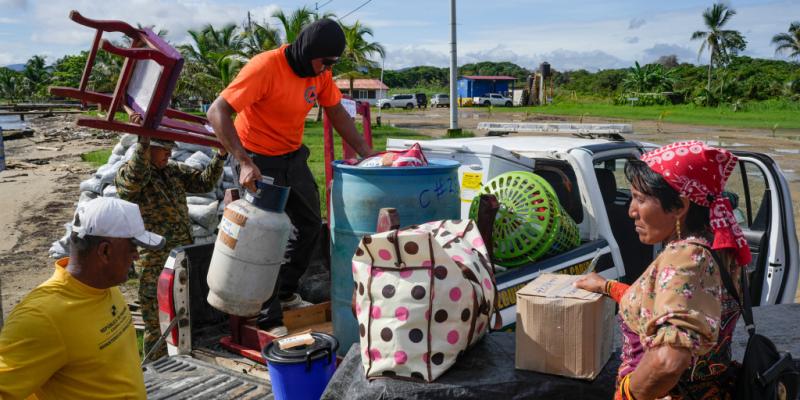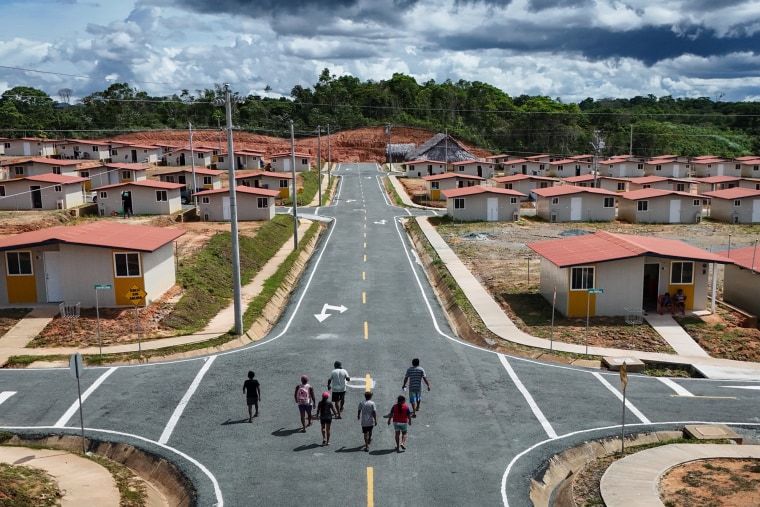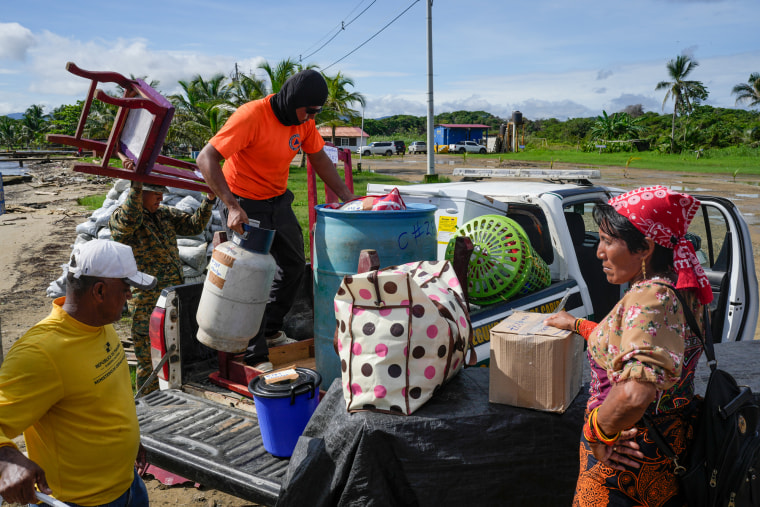Hundreds of Indigenous families complete relocation off Gardi Sugdub due to rising sea levels



About 300 families have successfully relocated off the island of Gardi Sugdub due to concerns over rising sea levels, Panama's ministry of housing announced Friday.
The small island off of the country's Caribbean coast has been the home to the Indigenous Guna people for generations. Now, the majority of its population has decided to evacuate after the impacts of climate change have worsened.
The families completed their move-in processes this week to a newly built housing development called Nuevo Carti, on the mainland in the Guna Yala region, that houses 1,350 individuals, according to Panamanian President Nito Cortizo.
"In recent years, the population of Gardi Sugdub Island has experienced great concern due to the rise in sea levels, a product of climate change. Given the risk for the residents, our government agreed to found a new settlement to ensure their future," he said.
In addition to housing, the project included the construction of other necessary infrastructure such as power lines, aqueducts and roads, as well as cultural spaces and playgrounds, according to the Ministry of Housing.
"This residential project, in addition to providing them with their own and safe home, also brings together spaces for their traditions," Minister of Housing Rogelio Paredes Robles said.
 Residents from the island of Gardi Sugdub walk to their new homes on the mainland in Nuevo Carti on Panama's Caribbean coast on June 5.Matias Delacroix / AP
Residents from the island of Gardi Sugdub walk to their new homes on the mainland in Nuevo Carti on Panama's Caribbean coast on June 5.Matias Delacroix / AP
The Guna community is only the first of many dozens along Panama's coasts that are expected to relocate because of rising sea levels in the coming decades.
Panama's Gardi Sugdub operation was cited as a case study in Human Rights Watch's April submission to the United Nations special rapporteur on the human rights of internally displaced persons.
"Time is of the essence: as climate change accelerates, the window during which we can all learn what makes planned relocation processes and outcomes more rights-compliant is quickly closing," the letter reads.
The submission is based on the organization's 2023 report that documented the stories of more than 40 Guna community members living on Gardi Sugdub who sought relocation support from Panama's government for more than a decade because of rising sea levels and overcrowding threats.
Panama's Ministry of Housing first committed to building the new mainland site for the Guna community in 2017.
 Civil protection officials, left, load a family's belongings on a truck on June 5 to move from the island of Gardi Sugdub, located off Panama's Caribbean coast, to Nuevo Carti on the mainland.Matias Delacroix / AP
Civil protection officials, left, load a family's belongings on a truck on June 5 to move from the island of Gardi Sugdub, located off Panama's Caribbean coast, to Nuevo Carti on the mainland.Matias Delacroix / AP
Human Rights Watch also said that in addition to supporting communities that want to relocate, it is also important to support individuals who do not want to leave their land or ways of life.
About 200 people chose to continue residing on Gardi Sugdub, according to The Associated Press.
"Engagement by human rights advocates should center on promoting the principle of informed consent — ensuring people move on their own terms — in a changing world," Human Rights Watch said.
The organization's focus on planned relocations due to the impacts of climate change is bolstered by the U.N. Refugee Agency's new report that projects global resettlement needs.
On Wednesday, the agency announced it now estimates that more than 2.9 million refugees worldwide will need resettlement in 2025.
"Resettlement is a life-saving intervention for at-risk refugees and a meaningful response to increased and unresolved situations of forced displacement," said Ruvendrini Menikdiwela, the U.N. agency's assistant high commissioner for protection.
The report also revealed that the U.N. Refugee Agency's new estimate is 20% higher than its 2024 figure — equating to about an expected 500,000 more displaced people next year. The agency said this increase is due to new global conflicts and the impacts of climate change.

Tags
Who is online
47 visitors

Cartí Sugtupu - Wikipedia
Climate Change: Global Sea Level | NOAA Climate.gov
Interglacial - Wikipedia
Currently the sea level is rising at a rate of around a tenth of an inch per year. This is to be expected in an interglacial period.
No one can say for sure how much of this rise is normal or how much of it can be attributed to climate change.
Plenty of time for humans to adapt and change and move further inland while building sea walls to protect coastal cities.
Actually there isn't. Anthropogenic global warming/climate change is happening even faster than predicted just a few years ago.
NASA satellite measurements show that solar radiation has actually decreased over the last 40 years.
So Milankovitch cycles don't explain the current warming. Only AGW explains it.
I find it interesting that folk are not surprised that NASA can safely land craft on the Moon and Mars but doubt their ability to understand the climate and its forcings.